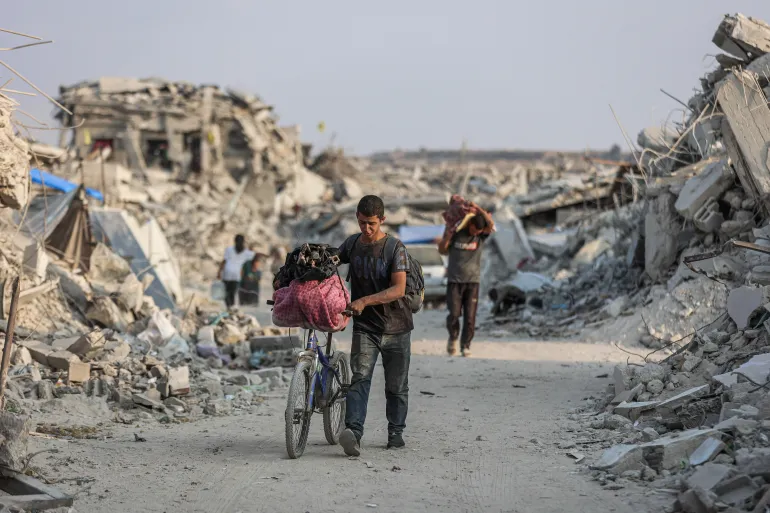The United Nations says the Israeli regime has rejected 107 requests for the entry of relief materials into the besieged Gaza Strip since a ceasefire agreement that went into effect on October 10th.
UN spokesperson Farhan Haq told reporters that Israeli forces were blocking essential humanitarian supplies into the blockaded Palestinian territories despite the existing fragile truce.
“Our partners report that since the ceasefire, the Israeli authorities have rejected 107 requests for the entry of relief materials, including blankets, winter clothes, and tools and materials to maintain and operate water, sanitation, and hygiene services,” Haq said.
Haq added that about 90 percent of these denials were issued on the grounds that organizations are “not authorized” to deliver humanitarian aid into Gaza.
“Almost 90 percent of these rejected requests were from over 330 local and international NGOs, of which more than half of the requests were denied on the grounds that the organizations were not authorized to bring relief items into Gaza,” he said.
The Israeli regime continues to impede the entry of aid to the besieged Palestinian territory. According to the Gaza Government Media Office, fewer than 30 of the aid trucks agreed in the ceasefire deal were allowed to enter the Gaza Strip.
Citing the Office for the Coordination of Humanitarian Affairs (OCHA), Haq noted that “continued detonations of homes and buildings had been reported every day across various neighborhoods of Gaza.”
“Continued detonations of residential buildings have been reported daily in multiple areas where the Israeli military remains deployed, especially in eastern Khan Younis, eastern Gaza City, and Rafah,” he added.
Haq said that Israeli strikes near the so-called “yellow line” continue, resulting in casualties. He stressed that “these military activities put civilians, including aid workers, at risk.”
The “yellow line” is the first withdrawal line outlined in the initial phase of the ceasefire. It separates areas still under Israeli military control in the east from those where Palestinians are permitted to move in the west.
‘Impediments’ to medical aid delivery
Meanwhile, Caroline Willemen, project coordinator for Doctors Without Borders in Gaza, said the medical charity brought in just 15 aid trucks since the truce came into effect nearly four weeks ago.
A number were denied entry, which she called part of a “pattern” over the past two years, where “bureaucratic impediments” by Israeli authorities are used to stifle humanitarian efforts.
She said this goes against the ceasefire deal that states 600 trucks a day should be allowed to enter the war-ravaged Palestinian territory.
Willemen said the medical charity has witnessed “a genocide in Gaza” for the last two years, with civilians killed and the health system deliberately destroyed.
“People have been denied access to water, access to food, access to medication,” she said.
In another development, the World Health Organization chief, Tedros Adhanom Ghebreyesus, said that over 16,500 Palestinians in the blockaded Palestinian territory were in urgent need of medical care.
The WHO pleaded with the international community to immediately take them in for treatment. “We urge more countries to receive patients from Gaza as over 16,500 people still need urgent medical care that is not available in the Strip,” said Ghebreyesus.
He also called for all evacuation routes – particularly those from the occupied West Bank, including East al-Quds – to be opened to facilitate the transfer of patients in need.
Israeli forces have killed at least 236 Palestinians and wounded 600 others in Gaza since a ceasefire agreement between Hamas and the Tel Aviv regime took effect last month.
Israel’s genocidal war on Gaza has killed at least 68,875 Palestinians and wounded 170,679 since October 2023.
IMAGE CREDIT: Palestinian man pushes his bicycle along a road surrounded by the rubble of destroyed buildings in Jabalia, in the northern Gaza Strip [File photo: AFP]
[ SOURCE: PRESS TV and NEWS AGENCIES ]

